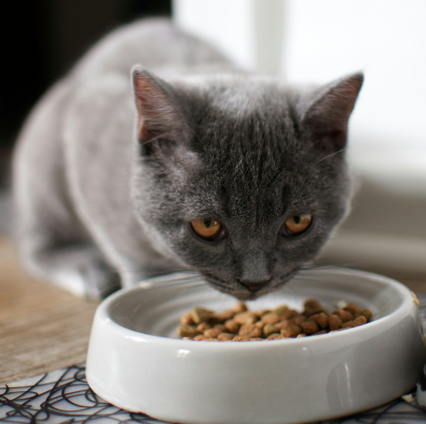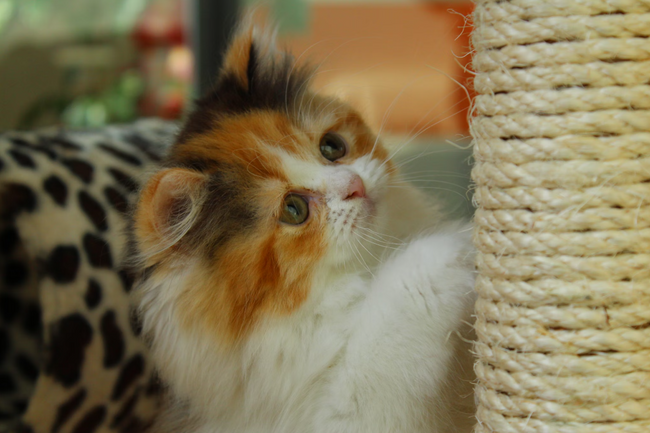|
Ensuring your cat gets optimal nutrition is key to their health, happiness, and longevity. With so many options available, it can be overwhelming to know what’s best for your feline friend. Here are 10 detailed tips to provide your cat with the best nutrition possible. |
1. Choose High-Quality Cat Food
Not all cat foods are created equal. Look for options with real meat or fish as the first ingredient, as these provide essential amino acids like taurine, which are critical for your cat's heart and vision health. Avoid foods with high amounts of fillers like corn, soy, or by-products, as these contribute minimal nutritional value. Opt for trusted brands with transparent ingredient sourcing and adherence to AAFCO (Association of American Feed Control Officials) standards.
2. Balance Wet and Dry Food
Offering a mix of wet and dry food gives your cat the best of both worlds. Wet food provides hydration and can be more palatable for picky eaters, while dry food can help reduce plaque buildup when combined with regular dental care. Ensure you monitor portion sizes for both types to avoid overfeeding. Cats prone to urinary or kidney issues may benefit from a higher proportion of wet food to maintain hydration.
3. Provide Fresh Water Daily
Hydration is vital for your cat’s overall health, aiding in digestion, kidney function, and skin health. Cats are naturally inclined to drink from running water, so consider investing in a cat fountain to encourage water intake. Place the fountain in a quiet area, away from food bowls, as cats prefer separation between eating and drinking zones. Replace water daily and clean the bowl or fountain regularly to prevent bacterial growth.
4. Monitor Portion Sizes
Overfeeding can lead to obesity, increasing the risk of diabetes, arthritis, and other health issues. Use a kitchen scale or measuring cup to accurately portion your cat’s meals based on the feeding guidelines provided by the food manufacturer. Regularly assess your cat's body condition and consult with your vet to adjust portions as needed, especially if your cat is gaining or losing weight unexpectedly.
5. Avoid Harmful Foods
Many human foods are toxic to cats and should be avoided at all costs. Chocolate, onions, garlic, grapes, and xylitol (a common artificial sweetener) can cause severe health problems, including organ failure. Even seemingly harmless foods like raw dough can pose risks. Ensure all family members and guests are aware of these hazards, and keep harmful foods stored safely away from curious paws.
6. Include Protein-Rich Foods
As obligate carnivores, cats thrive on diets rich in animal-based proteins. These provide the building blocks for strong muscles, healthy skin, and a shiny coat. Ensure your cat's food contains high-quality protein sources like chicken, turkey, or fish. Avoid plant-based proteins, as they lack essential amino acids cats require for optimal health.
7. Consider Your Cat’s Age
Your cat’s nutritional needs change as they grow. Kittens require calorie-dense food with higher protein and fat content to support their rapid growth. Adult cats need balanced maintenance formulas, while senior cats often benefit from foods tailored to joint health, digestion, and reduced calorie intake. Always choose age-appropriate food to support your cat’s developmental stage.
8. Supplement When Necessary
Some cats may benefit from dietary supplements, but these should always be used under veterinary supervision. Omega-3 fatty acids can improve coat health and reduce inflammation, while glucosamine and chondroitin support joint health. Probiotics may be recommended for cats with sensitive stomachs or digestive issues. Avoid over-supplementing, as excessive amounts of certain vitamins or minerals can cause harm.
9. Maintain Regular Feeding Schedules
Cats are creatures of habit and thrive on routine. Establish consistent feeding times to regulate their digestion and prevent stress related to irregular meal schedules. Divide their daily food allowance into multiple smaller meals to mimic their natural hunting and eating patterns. Use automated feeders if you’re away during feeding times to maintain consistency.
10. Regular Vet Check-Ups
Routine veterinary visits are essential to monitor your cat’s health and nutritional needs. Your vet can assess your cat’s weight, check for any underlying health conditions, and provide personalized dietary recommendations. Regular blood work can also help identify issues like kidney disease or diabetes early, allowing for timely dietary adjustments.
Conclusion
Optimal feline nutrition requires attention to food quality, hydration, portion control, and your cat’s unique needs. By following these ten tips, you can ensure your cat lives a healthy, happy, and well-nourished life.
Sources
PetMD: How to Feed Your Cat
VCA Animal Hospitals: Feline Nutrition Basics
Purina: Cat Nutrition Guide




